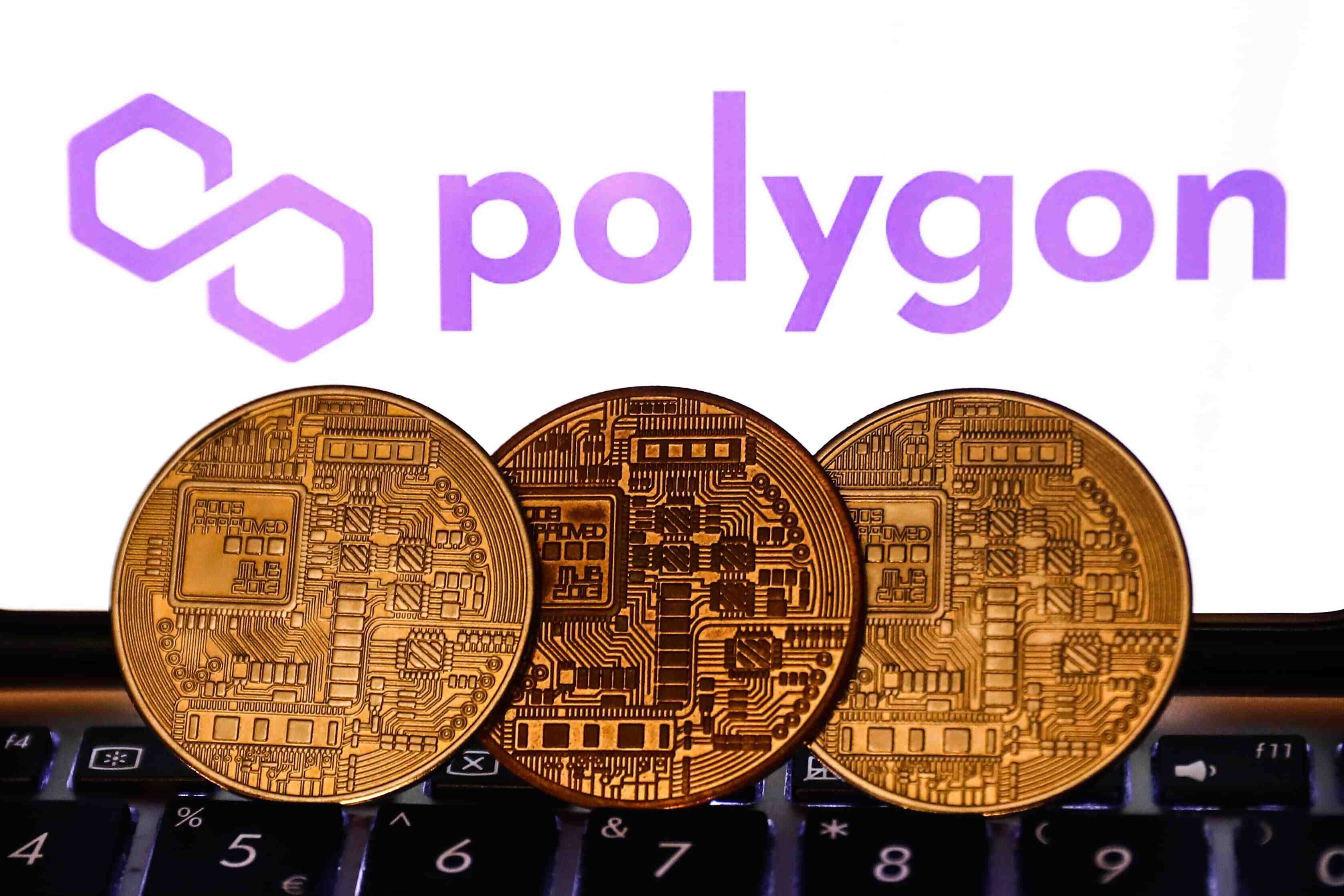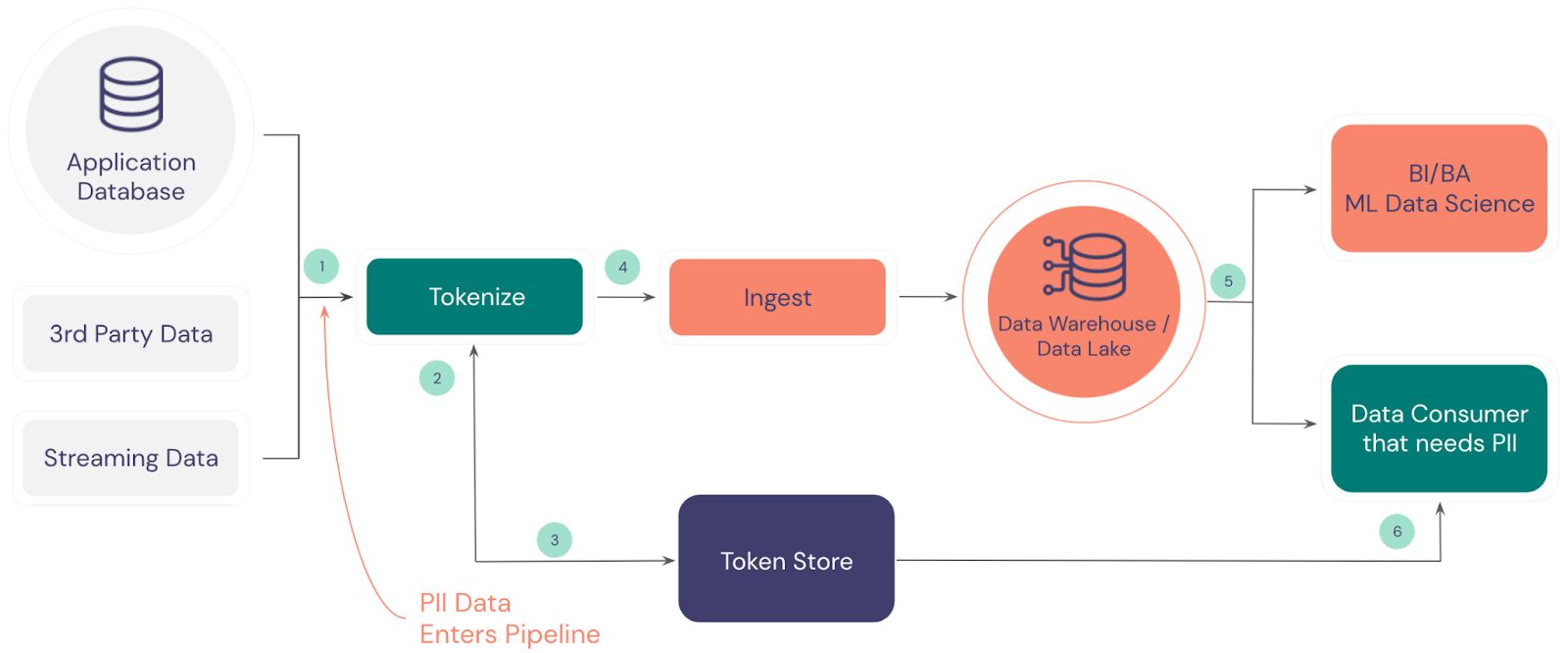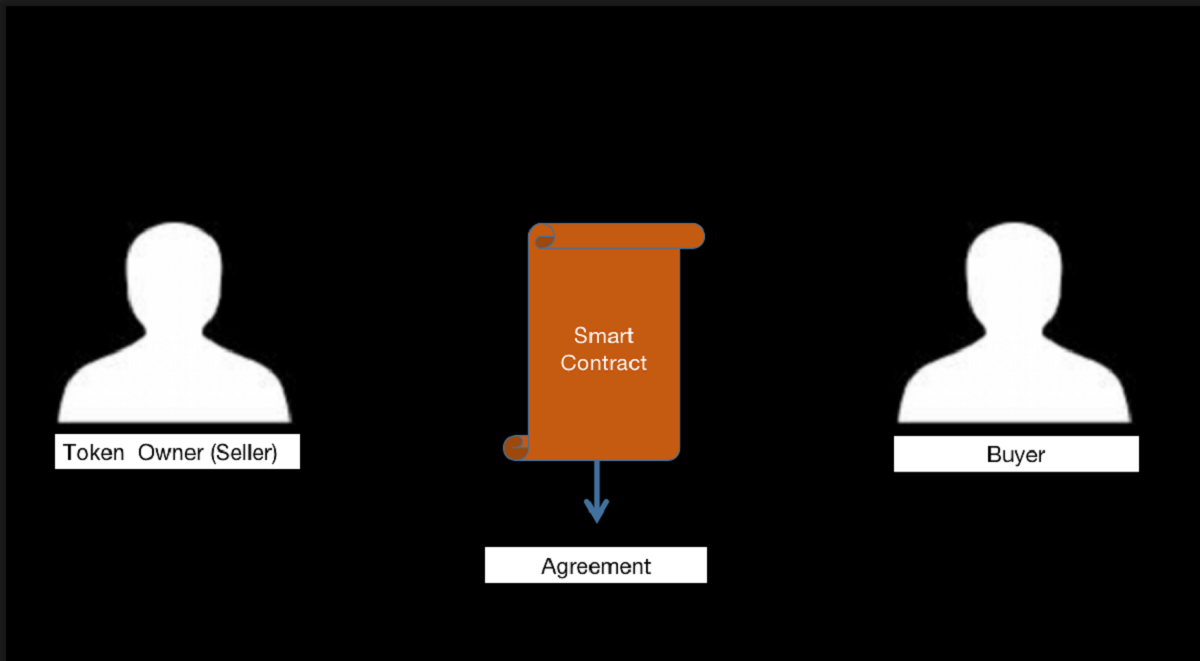Introduction
Welcome to the world of tokenization, a powerful technique that plays a vital role in various industries, from data security to payment processing. In today’s digital era, where sensitive information is constantly at risk, tokenization offers a solution to protect and secure valuable data.
Tokenization is the process of substituting sensitive information with a unique identifier called a token. This token acts as a reference to the original data, allowing authorized parties to retrieve the information when needed. By replacing sensitive data with tokens, organizations can minimize the risk of data breaches and protect their customers’ privacy.
In this article, we will explore the different purposes for which tokenization is used across various industries. We will delve into the realms of data security, payment processing, identity protection, fraud prevention, data analytics, customer experience, compliance, and user authentication. Each purpose serves a unique function and contributes to the overall effectiveness of tokenization.
Regardless of the industry, the primary objective of tokenization is to enhance data security while maintaining operational efficiency. By understanding the various purposes for which tokenization is employed, businesses can leverage this powerful technique to protect sensitive information, improve customer experiences, and adhere to regulatory compliance.
Tokenization has transformed the way businesses handle and secure sensitive data, becoming an essential component of modern information management systems. Whether it’s an e-commerce platform processing transactions, a healthcare organization securing patient records, or a financial institution safeguarding customer information – tokenization offers a highly effective and efficient approach.
Throughout this article, we will delve into the details of different sectors and their specific use cases for tokenization. From the secure processing of payment transactions to fraud prevention, tokenization plays a crucial role in safeguarding data while enabling organizations to derive valuable insights and deliver superior customer experiences.
Now, let’s explore each purpose in-depth and understand how tokenization functions as a key solution in diverse industries.
What is Tokenization?
Tokenization is a process that converts sensitive data into non-sensitive, unique identifiers called tokens. These tokens act as references to the original data, allowing authorized parties to access the information when required. The main purpose of tokenization is to enhance data security by replacing sensitive data, such as credit card numbers or personal identification details, with tokens that hold no inherent value or risk if intercepted.
When it comes to tokenization, the process involves several steps. First, sensitive data is collected and encrypted using robust encryption algorithms. Once encrypted, the data is securely stored in a central database or token vault. Then, a tokenization system generates a unique token that corresponds to the original data. This token is what will be used in place of the actual sensitive information in various processes and transactions.
One of the key advantages of tokenization is that even if a token is intercepted or stolen, it cannot be reversed to retrieve the original sensitive data. Tokens are typically random strings of characters, making them useless and meaningless to anyone who would try to access or misuse them.
Tokenization can be applied to various types of sensitive data, including credit card numbers, social security numbers, bank account details, and even personal health information. By using tokens in place of this sensitive data, organizations greatly reduce the risk of data breaches or unauthorized access to critical information.
Moreover, tokenization is a versatile technique that can be utilized in different environments, including on-premises systems and cloud-based platforms. It provides a seamless integration with existing systems and processes, allowing organizations to implement tokenization without disrupting their operations or requiring significant changes to existing infrastructure.
Overall, tokenization acts as a powerful safeguard against data breaches, ensuring that sensitive information remains secure while enabling organizations to operate efficiently and effectively. By implementing tokenization, organizations can enhance data security, comply with industry regulations, build trust with customers, and gain a competitive edge in today’s data-driven landscape.
Tokenization for Data Security
Data security is a paramount concern for organizations in every industry. With the increasing frequency of data breaches and cyber-attacks, safeguarding sensitive information has become a top priority. Tokenization provides a robust solution for enhancing data security by replacing sensitive data with tokens that hold no inherent value to an attacker.
By implementing tokenization, organizations can reduce the risk of data breaches and unauthorized access to sensitive data. The tokens generated in the tokenization process are meaningless and cannot be reversed to retrieve the original data. Even if a token is intercepted, it would be useless to an attacker without the corresponding token vault or decryption keys.
Tokenization is particularly valuable for protecting sensitive customer information, such as credit card numbers or social security numbers. By replacing these sensitive identifiers with tokens, organizations can prevent unauthorized access and minimize the potential impact of a data breach. In the event of a security incident, only tokens without any practical value would be compromised, as opposed to exposing actual sensitive data.
Furthermore, tokenization enables organizations to maintain compliance with industry regulations and standards. Many data protection regulations, such as the General Data Protection Regulation (GDPR) and the Payment Card Industry Data Security Standard (PCI DSS), require businesses to implement strong security measures to protect customer data. Tokenization offers an effective way to achieve compliance by securing sensitive information and reducing the scope of sensitive data within the organization’s systems.
Another advantage of tokenization is that it allows for secure data sharing and collaboration. When organizations need to share data with partners or third-party vendors, they can provide access to the corresponding tokens without revealing the original sensitive data. This ensures that confidential information remains protected even during collaborations or data sharing initiatives.
Tokenization also plays a role in disaster recovery and business continuity strategies. With tokenization, organizations can store backup tokens securely, ensuring the availability of sensitive data even in the event of a system or infrastructure failure. This enhances data resilience and ensures that critical information can be recovered and accessed when needed.
In summary, tokenization is a powerful solution for enhancing data security. By replacing sensitive data with tokens, organizations can mitigate the risk of data breaches, maintain compliance with industry regulations, enable secure data sharing, and strengthen disaster recovery capabilities. Tokenization empowers businesses to protect sensitive information while operating with confidence in today’s data-driven environment.
Tokenization for Payment Processing
In the world of financial transactions, tokenization plays a crucial role in enhancing the security and efficiency of payment processing. With the increasing popularity of online and mobile payments, businesses are under constant pressure to protect customer payment information from unauthorized access and fraud. Tokenization provides a robust solution to address these challenges in the payment processing landscape.
When customers make purchases online or at physical stores, their payment card information is highly sensitive and prone to theft. By implementing tokenization, businesses can replace the actual card details with unique tokens, eliminating the need to store and transmit the sensitive card data. This significantly reduces the risk of card information being exposed or intercepted during the payment process.
Tokenization enhances the security of payment processing by adhering to industry standards and compliance regulations, particularly the Payment Card Industry Data Security Standard (PCI DSS). By using tokens, organizations can limit the scope of sensitive cardholder data within their systems. As a result, they can significantly reduce the complexity and cost associated with PCI DSS compliance audits and maintain a higher level of data security.
Moreover, tokenization simplifies the process of recurring payments or subscription-based services. Instead of storing the actual payment card details, businesses can securely store and use tokens to initiate subsequent transactions. This not only ensures the security of customer payment information but also streamlines the payment process, improving customer convenience and reducing the risk of errors.
Tokenization also plays a vital role in preventing fraud and unauthorized transactions. Since tokens do not contain any sensitive payment information, they are of no use to fraudsters attempting to exploit or misuse customer data. Even if a token is compromised, it would be virtually impossible to reverse-engineer the original payment card details.
With the rise of mobile wallets and contactless payments, tokenization is essential for securing digital payment methods. By tokenizing the payment credentials stored in mobile devices, such as smartphones or smartwatches, businesses can ensure that the actual card details are never exposed during transactions. This offers an additional layer of security, protecting both businesses and consumers from potential data breaches.
In summary, tokenization is a game-changer in the world of payment processing. It enhances data security, simplifies compliance with regulations, streamlines recurring payments, and helps prevent fraud. By implementing tokenization, businesses can instill trust in their customers, protect sensitive payment information, and ensure a secure and seamless payment experience for all parties involved.
Tokenization for Identity Protection
Identity protection is a critical priority in today’s digital landscape. Organizations must take proactive measures to secure personal information and prevent identity theft. Tokenization plays a vital role in safeguarding sensitive identity data, such as social security numbers and personal identification numbers (PINs), from unauthorized access and misuse.
By employing tokenization techniques, organizations can replace sensitive identity data with unique tokens, rendering the original information meaningless and useless to potential attackers. This ensures that even if a token is intercepted, it cannot be used to impersonate an individual or gain unauthorized access to their personal accounts or information.
Tokenization also plays a significant role in securing customer authentication processes. Instead of storing actual passwords, organizations can tokenize them, ensuring that even in the event of a data breach, attackers do not have access to users’ actual login credentials. This protects user accounts and prevents unauthorized access to sensitive information.
Furthermore, tokenization enables secure and privacy-preserving data sharing in identity management systems. When individuals need to share personal information, tokens can be used as identifiers without disclosing the actual sensitive data. This protects personal privacy while still allowing for efficient data sharing and collaboration.
One of the primary benefits of tokenization for identity protection is that it helps organizations comply with privacy regulations, such as the General Data Protection Regulation (GDPR) and the Health Insurance Portability and Accountability Act (HIPAA). These regulations require organizations to implement strong security measures and protect individuals’ personal information. Tokenization helps organizations achieve compliance by ensuring that sensitive personal data is securely stored and only accessed with proper authorization.
Tokenization is also valuable in the healthcare industry, where protecting patients’ personally identifiable information (PII) is of utmost importance. By tokenizing sensitive healthcare data, such as medical records and insurance information, healthcare providers can maintain privacy while ensuring seamless access for authorized personnel.
Another use case for tokenization in identity protection is in biometric data security. Biometric identifiers, such as fingerprints or iris scans, are unique to individuals and act as a crucial authentication factor. By tokenizing biometric data, organizations can ensure that this sensitive information remains secure and cannot be misused or replicated by unauthorized entities.
In summary, tokenization offers a robust solution for identity protection. It replaces sensitive identity data with tokens, ensuring the security and privacy of personal information. Tokenization helps organizations comply with privacy regulations, safeguards sensitive user authentication processes, enables secure data sharing, and protects biometric data. By implementing tokenization, organizations can build trust with individuals, enhance identity security, and mitigate the risks associated with identity theft and unauthorized access.
Tokenization for Fraud Prevention
Fraud prevention is a constant challenge for organizations in today’s interconnected world. With the rise of sophisticated fraud techniques and cybercrime, businesses must implement robust measures to protect themselves and their customers from financial fraud. Tokenization plays a pivotal role in preventing fraud by securing sensitive data and making it useless to fraudsters.
By tokenizing sensitive data, such as credit card numbers or bank account details, organizations can greatly reduce the risk of unauthorized access and misuse. Tokens are meaningless and do not hold any value, making them useless to fraudsters attempting to steal payment information or perform fraudulent transactions.
Tokenization also enhances the security of data transmission. When a customer makes a payment or provides their sensitive information, tokenization allows organizations to securely transmit the tokens instead of the actual sensitive data. This mitigates the risk of interception during transmission and safeguards the customer’s payment information.
Furthermore, tokenization helps businesses in detecting and preventing fraud attempts. By analyzing transaction patterns and token usage, organizations can identify unusual or suspicious activities that may indicate fraudulent behavior. This enables proactive mitigation measures to be taken, such as blocking certain tokens or engaging in additional identity verification processes.
Tokenization also plays a role in securing customer accounts and preventing unauthorized access. By tokenizing user authentication credentials, such as passwords or biometric data, organizations can ensure that the actual login credentials are protected. This makes it difficult for fraudsters to gain unauthorized access to user accounts, thus preventing identity theft and fraudulent activities.
In the case of e-commerce transactions, tokenization adds an extra layer of security by ensuring that customer payment information is not stored in the merchant’s system. Even if a hacker gains access to the merchant’s database, they will only find tokens that hold no value or risk. This significantly reduces the likelihood of payment card data being compromised and used for fraudulent purposes.
Tokenization is also beneficial in fraud investigation and response. In the event of a suspected fraud or security breach, organizations can provide law enforcement agencies or forensic teams with the tokens associated with the fraudulent transactions. This assists in conducting investigations while ensuring that the original sensitive data remains protected.
In summary, tokenization is a powerful tool for fraud prevention. It secures sensitive data, prevents unauthorized access, enhances data transmission security, aids in fraud detection, and adds an additional layer of protection in e-commerce transactions. By implementing tokenization, organizations can effectively combat fraud, protect their customers, and maintain the integrity of financial transactions.
Tokenization for Data Analytics
Data analytics plays a crucial role in today’s business landscape, enabling organizations to gain valuable insights and make data-driven decisions. However, working with sensitive data presents challenges in terms of privacy and regulatory compliance. Tokenization offers a solution for organizations to leverage the power of data analytics while ensuring the security and privacy of sensitive information.
Tokenization enables organizations to transform sensitive data into tokens while preserving the relationships between the tokens and the original data. This allows data analysts and data scientists to perform complex analytics and gain insights without directly accessing or exposing the sensitive information.
By tokenizing sensitive data, organizations can adhere to privacy regulations, such as the General Data Protection Regulation (GDPR) and the Health Insurance Portability and Accountability Act (HIPAA). Tokenization ensures that sensitive personal or healthcare data remains protected, even during the analytics process. This helps organizations avoid potential penalties and safeguard the privacy of individuals.
Tokenization also mitigates the risk of data breaches during data sharing and collaboration. When organizations need to share data with partners, vendors, or external analysts, they can provide access to the tokens instead of revealing the actual sensitive data. This protects the confidentiality of the original information while enabling secure collaboration and data-driven decision-making.
Another advantage of tokenization for data analytics is the ability to work with diverse datasets. Tokenization allows organizations to combine data from multiple sources without exposing the individual, identifiable details. This enables comprehensive analysis and integration of data while ensuring privacy and data protection.
Moreover, tokenization contributes to data quality and integrity. The use of tokens ensures that sensitive data remains consistent and unchanged throughout the analytics process. This maintains the accuracy and reliability of analytics results, as the original data is preserved and referenced through the corresponding tokens.
Tokenization also supports data masking, a technique where sensitive data is replaced with tokens or anonymized representations. This is particularly useful when data needs to be shared with analysts or data scientists who do not require access to specific personally identifiable information (PII) for their analysis. Tokenization enables organizations to provide meaningful data to analysts while protecting the privacy of individuals involved.
In summary, tokenization enables organizations to leverage the power of data analytics while ensuring data security, privacy, and compliance with regulations. By tokenizing sensitive data, organizations can confidently perform analytics, share data securely, maintain data quality, and protect the privacy of individuals. Tokenization empowers businesses to unlock valuable insights from their data while upholding ethical and responsible data practices.
Tokenization for Customer Experience
Tokenization not only enhances data security but also contributes to a seamless and improved customer experience. By implementing tokenization techniques, organizations can offer customers a safer and more convenient way to interact with their products and services.
One way tokenization enhances customer experience is by ensuring the security of payment transactions. When customers make purchases online or in-store, tokenization replaces their sensitive payment card information with tokens. This eliminates the need for customers to repeatedly enter their card details for every transaction, reducing friction and streamlining the payment process.
Moreover, tokenization simplifies the customer checkout experience. By securely storing and using tokens instead of payment card information, organizations eliminate the need for customers to manually enter their payment details each time they make a purchase. This significantly reduces the risk of errors and makes the checkout process faster and more convenient for customers.
Tokenization also helps eliminate the need for customers to remember and manage multiple login credentials. By tokenizing user authentication credentials, organizations can offer customers a single login experience across different platforms and services. This improves convenience and reduces frustration, as customers no longer need to remember multiple usernames and passwords.
Additionally, tokenization facilitates personalized experiences for customers. By securely storing and using tokens to identify customers, organizations can gather and analyze customer data to offer personalized recommendations, tailored offers, and targeted marketing campaigns. This enables businesses to create more relevant and engaging experiences for their customers, fostering loyalty and satisfaction.
Tokenization also enhances customer trust and confidence in organizations’ data security practices. When customers are informed that their sensitive data is protected through tokenization, they are more likely to feel secure in sharing their information and interacting with the organization’s products or services. This builds trust in the brand and fosters positive customer relationships.
Furthermore, tokenization supports compliance with privacy regulations, such as the General Data Protection Regulation (GDPR). By implementing tokenization to protect sensitive customer data, organizations demonstrate their commitment to data protection and compliance. This helps enhance customer trust and confidence in the organization’s handling of their personal information.
In summary, tokenization improves the customer experience by enhancing data security, simplifying payment transactions, reducing friction in the checkout process, enabling personalized experiences, fostering customer trust, and supporting compliance with privacy regulations. By leveraging tokenization, organizations can provide a seamless and secure customer experience that nurtures long-lasting customer relationships.
Tokenization for Compliance
In today’s highly regulated business landscape, organizations must prioritize compliance with industry standards and regulations to avoid legal issues and protect customer data. Tokenization offers a robust solution for achieving compliance by enhancing data security and minimizing the impact of sensitive data within an organization’s systems.
One of the primary compliance benefits of tokenization is in protecting sensitive customer data. By replacing actual sensitive data with tokens, organizations can reduce the scope of sensitive information within their systems. This significantly reduces the risk of data breaches and minimizes the impact if a breach were to occur, as the compromised data would be useless without the corresponding token vault or decryption keys.
Tokenization also supports compliance with various regulations, such as the General Data Protection Regulation (GDPR), the Payment Card Industry Data Security Standard (PCI DSS), and the Health Insurance Portability and Accountability Act (HIPAA). These regulations require organizations to implement strong security measures to protect personal and sensitive information. Tokenization provides a robust security measure by ensuring that sensitive data is tokenized, reducing the risk of unauthorized access and minimizing the potential impact in case of a data breach.
Moreover, tokenization can simplify compliance audits and certification processes. By implementing tokenization, organizations greatly limit the scope of sensitive information that falls under compliance scrutiny. This reduces the complexity, time, and cost associated with compliance audits, as auditors will only need to review the tokenization processes and systems rather than the entire scope of sensitive data.
Tokenization also supports compliance in data sharing and collaboration efforts. When organizations need to share data with partners or third-party vendors, they can provide access to the corresponding tokens without revealing the original sensitive data. This ensures that confidentiality is maintained during data sharing activities, reducing the risk of non-compliance and mitigating the potential for data breaches.
Furthermore, tokenization supports compliance with data retention and data disposal regulations. As organizations store sensitive data for a specific period as required by regulations, tokenization ensures that the original data is securely protected while still allowing authorized access when necessary. When it comes time to dispose of the data, the tokens can be easily and securely removed from the system, leaving no trace of the original sensitive information.
In summary, tokenization plays a crucial role in achieving compliance with industry standards and regulations. By minimizing the scope of sensitive data, providing enhanced security, simplifying compliance audits, facilitating secure data sharing, and supporting data retention and disposal requirements, tokenization enables organizations to meet their compliance obligations. Implementing tokenization helps organizations protect customer data, build trust, and operate with confidence in a highly regulated environment.
Tokenization for User Authentication
User authentication is a critical aspect of ensuring secure access to systems, applications, and services. Tokenization plays a significant role in enhancing user authentication processes by improving security, reducing the risk of unauthorized access, and simplifying authentication for users.
One of the key benefits of tokenization for user authentication is the protection of sensitive login credentials, such as passwords or biometric data. Instead of storing actual authentication information, organizations can tokenize these credentials, ensuring that the original data remains secure even in the event of a data breach. This mitigates the risk of unauthorized access to user accounts and prevents the compromise of login credentials.
Tokenization also simplifies the authentication experience for users. With tokenization, users no longer need to remember complex passwords for multiple accounts. Instead, they can use a single token or authentication factor, such as a fingerprint, to verify their identity and gain access to various services or systems. This streamlines the authentication process, reduces friction, and improves the user experience.
Moreover, tokenization enhances the security of multi-factor authentication (MFA) systems. MFA adds an additional layer of security by requiring users to provide multiple authentication factors to verify their identity. Tokens can be used as one of these factors, ensuring that the authentication process remains secure while offering convenience to users by eliminating the need for additional hardware tokens or one-time passwords.
Tokenization also enables secure authentication in remote or cloud-based environments. When accessing systems or services in cloud environments, users can authenticate using tokens that represent their identity, eliminating the need to transmit sensitive login credentials over potentially insecure networks. This ensures that user authentication remains secure and protects against potential interception or unauthorized access.
Furthermore, tokenization supports secure single sign-on (SSO) experiences. With SSO, users can access multiple applications or services using a single set of login credentials. By tokenizing authentication information, organizations can implement SSO without exposing the actual user credentials to every application or service. This improves convenience for users and simplifies the management of access to various resources.
Additionally, tokenization enhances the security of session management. Tokens can be used to maintain and validate user sessions, ensuring that only authorized entities can access the system or service. This prevents session hijacking or impersonation attempts, providing an additional layer of security during user authentication and interaction.
In summary, tokenization improves user authentication processes by protecting sensitive login credentials, simplifying authentication experiences, enhancing the security of MFA and remote access, facilitating secure SSO, and enabling secure session management. By leveraging tokenization, organizations can ensure secure user authentication, protect user accounts, and provide a seamless and convenient authentication experience for their users.
Conclusion
Tokenization is a powerful technique that serves various purposes across different industries. It enhances data security by replacing sensitive information with tokens, reducing the risk of data breaches and unauthorized access. By implementing tokenization, organizations can protect valuable data, comply with regulatory requirements, and build trust with customers.
In the realm of data security, tokenization provides a robust solution for safeguarding sensitive information. It ensures that even if tokens are compromised, they hold no intrinsic value or risk to attackers. Tokenization also simplifies compliance with industry regulations and standards by reducing the scope of sensitive data and enhancing data protection measures.
For payment processing, tokenization improves security, simplifies transactions, and prevents fraud. Tokenizing payment information significantly reduces the risk of card data theft and eliminates the need to store actual card details. This streamlines the payment process, enhances user experience, and protects businesses from potential fraud attempts.
Tokenization also plays a crucial role in identity protection, ensuring that sensitive identifiers and user authentication credentials remain secure. By tokenizing sensitive data, organizations can protect against identity theft and unauthorized access to personal accounts. Tokenization also supports compliance with privacy regulations and enables secure data sharing while maintaining individual privacy.
In fraud prevention, tokenization helps mitigate the risk of unauthorized access and misuse. By replacing sensitive information with tokens, organizations can render stolen data useless to fraudsters. Tokenization also aids in fraud detection and prevention by analyzing token usage patterns and identifying suspicious activities.
Tokenization is not limited to security measures; it also offers benefits for data analytics. By tokenizing sensitive data, organizations can perform analytics while protecting privacy and complying with regulations. Tokenization enables secure data sharing, maintains data quality, and supports personalized experiences without compromising the privacy of individuals.
Furthermore, tokenization contributes to a seamless customer experience. By enhancing data security, simplifying payment transactions, and providing personalized experiences, organizations can build trust, improve convenience, and foster loyalty with their customers.
Lastly, tokenization helps organizations achieve compliance with industry standards and regulations. By reducing the scope of sensitive data, securing data transmission, and facilitating secure data sharing, organizations can protect customer information while meeting the requirements of privacy and data protection regulations.
In conclusion, tokenization is a versatile and powerful technique that serves various purposes across different industries. By implementing tokenization, organizations can enhance data security, protect sensitive information, simplify compliance, prevent fraud, and provide a superior customer experience. Tokenization empowers businesses to navigate the complex landscape of data privacy, security, and compliance while safeguarding valuable data assets.

























